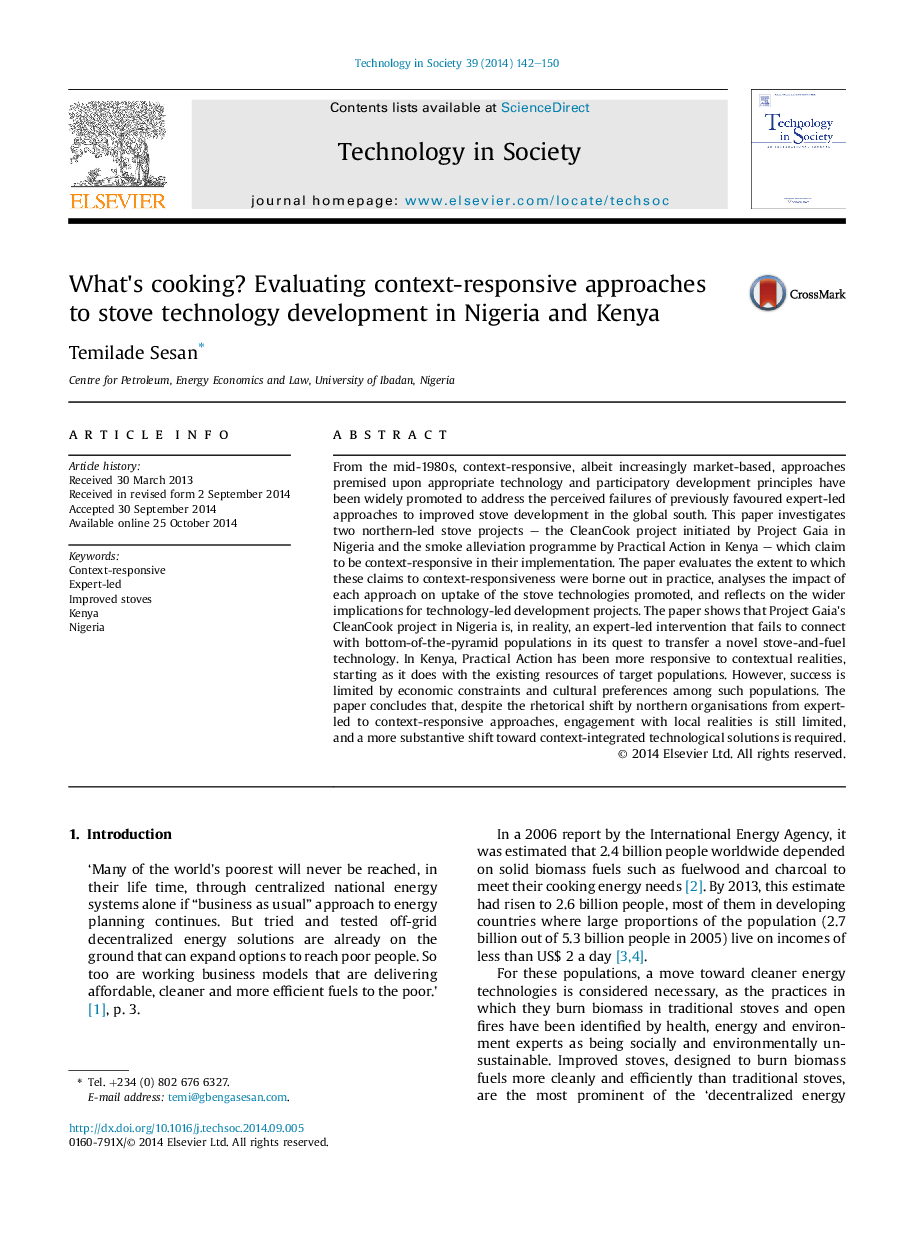| Article ID | Journal | Published Year | Pages | File Type |
|---|---|---|---|---|
| 375187 | Technology in Society | 2014 | 9 Pages |
•Stove technology uptake is contingent on economic, social, and political factors.•An expert-led approach in Nigeria only partly responded to these contextual factors.•A context-responsive approach in Kenya began with local realities and aided uptake.•Data show context-responsive implementation to be limited in development practice.•A move towards context-integrated approaches would enable greater responsiveness.
From the mid-1980s, context-responsive, albeit increasingly market-based, approaches premised upon appropriate technology and participatory development principles have been widely promoted to address the perceived failures of previously favoured expert-led approaches to improved stove development in the global south. This paper investigates two northern-led stove projects – the CleanCook project initiated by Project Gaia in Nigeria and the smoke alleviation programme by Practical Action in Kenya – which claim to be context-responsive in their implementation. The paper evaluates the extent to which these claims to context-responsiveness were borne out in practice, analyses the impact of each approach on uptake of the stove technologies promoted, and reflects on the wider implications for technology-led development projects. The paper shows that Project Gaia's CleanCook project in Nigeria is, in reality, an expert-led intervention that fails to connect with bottom-of-the-pyramid populations in its quest to transfer a novel stove-and-fuel technology. In Kenya, Practical Action has been more responsive to contextual realities, starting as it does with the existing resources of target populations. However, success is limited by economic constraints and cultural preferences among such populations. The paper concludes that, despite the rhetorical shift by northern organisations from expert-led to context-responsive approaches, engagement with local realities is still limited, and a more substantive shift toward context-integrated technological solutions is required.
